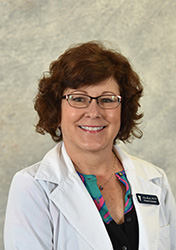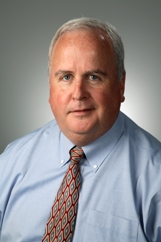Category Archives: Family Health
Bless You!
A Q&A about allergies and testing with Dr. Janice Rutkowski
After the winter season of 2014-2015, we are enjoying the onset of beautiful spring days, but unfortunately not everyone is enjoying the good weather. Maryland is one of the most allergy-prone states, both in air-born allergens and those in food.
In this article, Dr. Janice Rutkowski answers questions about allergies and testing for them.
Q: What are allergies?
A: Allergies happen when your immune system reacts to a foreign substance (allergen), such as plant pollen, dust, certain foods, insect stings or bites, or pet dander. When you come into contact with an allergen, your immune system’s reaction can inflame your skin, sinuses, airways or digestive system.
Q: What are the signs I may have allergies?
A: Allergic symptoms include itchy eyes, nose or throat, nasal congestion, runny nose, watery eyes, chest congestion, cough or wheezing, itchiness or eczema (inflamed or irritated skin). The severity of allergies can range from minor irritation to anaphylaxis — a potentially life-threatening emergency.
Q: Can allergies be cured?
A: Most allergies can’t be cured, but treatment can help relieve your symptoms. In the case of seasonal allergies, many people find relief with over-the-counter medications. But when they don’t respond to the usual treatments, they require testing to determine the cause.
Q: What allergy tests are available?
A: There are two standard tests: skin tests and blood tests.
Skin tests (known as scratch tests) are the most common and are administered by allergists or dermatologists. A very small amount of certain allergens are put into your skin by making a small indentation or “prick” on the surface of your skin. If you have allergies, a small swelling that looks and feels like a mosquito bite will quickly occur where the allergen(s) is introduced.
However, under certain conditions, a blood allergy test is preferable to the skin test. Allergy blood testing is recommended if you:
- Might have an extreme reaction during skin testing or have a history of life-threatening allergic reactions.
- Have severe skin disorders.
- Are using a medicine known to interfere with test results and cannot stop taking it for a few days. This would include antihistamines, steroids, and certain antidepressants.
- Cannot tolerate the many needle scratches required for skin testing.
- Have an unstable heart condition.
- Have poorly controlled asthma.
MPCP can administer the blood test in our offices for people who have skin disorders or are at risk for an extreme reaction. We can test for many substances in one sitting.
If you are one of many who suffer from cold-like symptoms with the change of seasons or have one of the symptoms listed above, see your MPCP doctor for evaluation and treatment so you can enjoy this wonderful season in good health!
Family Medicine Practitioners: Care for the Whole Family – Even Babies
A Q&A with Lyn N. Dea, D.O.
Q. I know family medicine specialists see children and adults, but babies too?
A. Yes! Many of our MPCP family providers are trained and experienced in pediatric care. Family medicine as a specialty is devoted to the comprehensive health care of individuals of all ages, and particularly in the context of family and community.
Q: Are there advantages to bringing my infant to MPCP?
A. Since MPCP focuses on primary care and family medicine, chances are we already know your family and your medical history, so there’s no learning curve when a new baby arrives. Your child can easily be integrated into your family’s program of care – plus you don’t have to find a separate healthcare provider just for your child.
Q. Does MPCP see many babies?
A. Yes, many families entrust their infants’ care to us. But that’s only part of the story. Our doctors care for many three-generation families ─ child, parents and grandparents – and even some four-generation families. We provide care for everyone under one roof. Only family physicians can do that!
 Dr. Dea is a Maryland Primary Care Physicians, LLC partner and is certified by the American Board of Family Medicine. She received her medical degree from the Philadelphia College of Osteopathic Medicine in 1998 and completed her residency program in Family Practice at Franklin Square Hospital Center in 2001. Dr. Dea treats patients of all ages, from newborns to adults.
Dr. Dea is a Maryland Primary Care Physicians, LLC partner and is certified by the American Board of Family Medicine. She received her medical degree from the Philadelphia College of Osteopathic Medicine in 1998 and completed her residency program in Family Practice at Franklin Square Hospital Center in 2001. Dr. Dea treats patients of all ages, from newborns to adults.Teen Stress: Tips for Parents
By: Lisa Meade, PA-C
A recent study by the American Psychological Association (APA) confirms what I see weekly in my practice: Teens feel a great deal of stress and anxiety, but often don’t have the proper coping strategies to deal with these feelings.
The APA report “Stress in America” included data on American youth (teens ages 13-17) for the first time this year. The report found that teens feel higher levels of stress than they think is healthy, but don’t necessarily try to adopt healthy coping strategies, or don’t know what those strategies are.
When I talk to my teen patients, they say trying to juggle school, their social life, and home life can be overwhelming. Expectations and pressure about college are particularly tough for older teens. Plus, we can all remember how important friends and “fitting-in” are at this age– which makes all of the social media and online chatter an extra stressor.
Parents can be a huge help in teaching teens healthy coping strategies and how to keep things in perspective. Here are some suggestions:
1. Know the signs of stress overload in your child. Common results of teen stress can be: Increased physical illness (headaches, stomachaches, chronic fatigue, muscle pain); “shutting down” or withdraw from people and activities; increased anger or irritability; difficulty sleeping or eating; increased tearfulness or feelings of worry; difficulty concentrating.
2. Be willing to listen and model stress coping skills. It’s important for teens to know that stress is part of life and sometimes admitting you are “stressed out” helps. Try to help your child identify what’s really giving them anxiety and then come up with some coping strategies together.
3. Encourage healthy lifestyle habits and reinforce those at home. Here are the things I tell my teen patients to try:
– Get enough sleep! Teens still need 8-10 hours of sleep a night, especially during the school week. Prioritize homework, social or sports activities, phone/TV time. You may not be able to do it all.
– Focus on your strengths. Think about the things you are really good at- or that make you happy- and find ways to spend time doing those things. It will build your confidence and you will find people with like interests.
– Get some exercise. Physical activity is a proven stress reducer. If you’re not on a sports team, find any activity that you enjoy and try to do it at least 30 minutes a day.
– Eat right! Skipping meals or drinking energy drinks will make you feel more stressed in the long run. Try to eat three healthy meals a day and don’t rely on caffeine to keep you going.
– Don’t try to be perfect! Remember that we all make mistakes and a bad choice now and then. Try to keep things in perspective and not focus on the negative. The ability to learn from mistakes and move on is a sign of maturity.
– Talk to someone. It’s much easier to manage stress with a helping hand. Talk to a parent, teacher, doctor, or other trusted adult. They may be able to help you find a way to manage a problem, such as practicing a response to a social situation, getting a tutor in a class, or dealing with a difficult transition such as moving or divorce.
If you feel that your stress is making you depressed, or you find yourself using drugs or alcohol to cope, please tell someone. It might be time to talk to a psychologist or trained professional.
Helping your teen learn healthy ways to cope with stress now will prepare them for a healthier adulthood. Part of the great challenge- and reward- of parenting!

Caregivers: Don’t Forget to Take Care of Yourself
8 Tips from Thomas Walsh, M.D.
Whether you’ve recently become caregiver to an aging or ill family member –or have been tackling the responsibility for some time– you must make your own health a priority. The caregiving role can be very rewarding, but it can also tax you both physically and emotionally. After becoming a primary caretaker myself, I learned several lessons and have a keen interest in this issue.
Here are 8 tips I suggest to my patients for reducing stress and staying healthy as a caregiver:
- Slow down. When you are trying to juggle many responsibilities, you often rush through things and are distracted. This can lead to accidents and injuries. You don’t want to burn yourself while cooking, slip in the tub, etc. Studies show that household and car accidents are more common among those with a high stress level.
- Use your freezer. Trying to “eat right” or prepare healthy meals when you’re caregiving is tough. Accept offers for meals from friends and try to cook ahead and freeze meals to have on hand. A big pot of soup is great to freeze in batches. Stockpile healthy snacks like almonds, yogurt and fruit to grab on the go.
- Make exercise a priority. Again, finding time for this is tough, but you need to keep your energy up and relieve stress. If you are caring for someone with mobility issues, you’ll also need to stay strong for tasks like lifting. Try to find at least 30 minutes a day for a workout you enjoy.
- Sleep to recover. Disrupted sleep definitely saps energy and can lead to more anxiety. Adults need 7-8 hours of sleep per night so try to adopt good sleep habits- a dark room, no electronics, no caffeine or alcohol close to bedtime.
- Stay organized. Another way to reduce stress is to know where things are when you need them. Starting a file for medical/insurance papers, or financial information, for your loved one will help keep them in one place. A large calendar for family appointments/events can help with daily planning.
- Ask for help. Try to develop a support network and say “yes” if people offer to drive, sit with your loved one, or take care of errands. Look for professional resources such as adult day care facilities. Several organizations, such as the Administration on Aging (which has an elder care locator by state) and the National Alliance for Caregiving (www.caregiving.org) provide great information.
- Have “the conversation”. Make sure you understand what your family member wants in case you become responsible for making decisions for them. It may be uncomfortable- and stressful. However, you should know the ins and outs of power or attorney, a living will, or healthcare proxy. If you don’t, find an eldercare expert or attorney to help.
- Lastly, go easy on yourself. Don’t feel guilty for taking time to exercise or care for your own emotional well-being. Studies show that caregivers’ health often deteriorates over time due to stress and lack of sleep, poor diet, etc. Your doctor can also help with keeping you healthy and suggesting resources in the community.
As a reminder for how to tackle the caregiving role, I often use what I call the “airplane analogy”: Right after you board a commercial airplane, the flight attendants will review the important safety instructions. If the cabin loses pressure and the oxygen masks drop down, they stress, “If you are traveling with a small child or someone who needs assistance, put your own mask on first, then help the person that needs assistance.” Caregivers need to live by this rule: Take care of yourself first or you will not be able to help the person who needs assistance.
Dr. Thomas Walsh is an MPCP Partner and Clinical Director of the MPCP Queenstown office.





